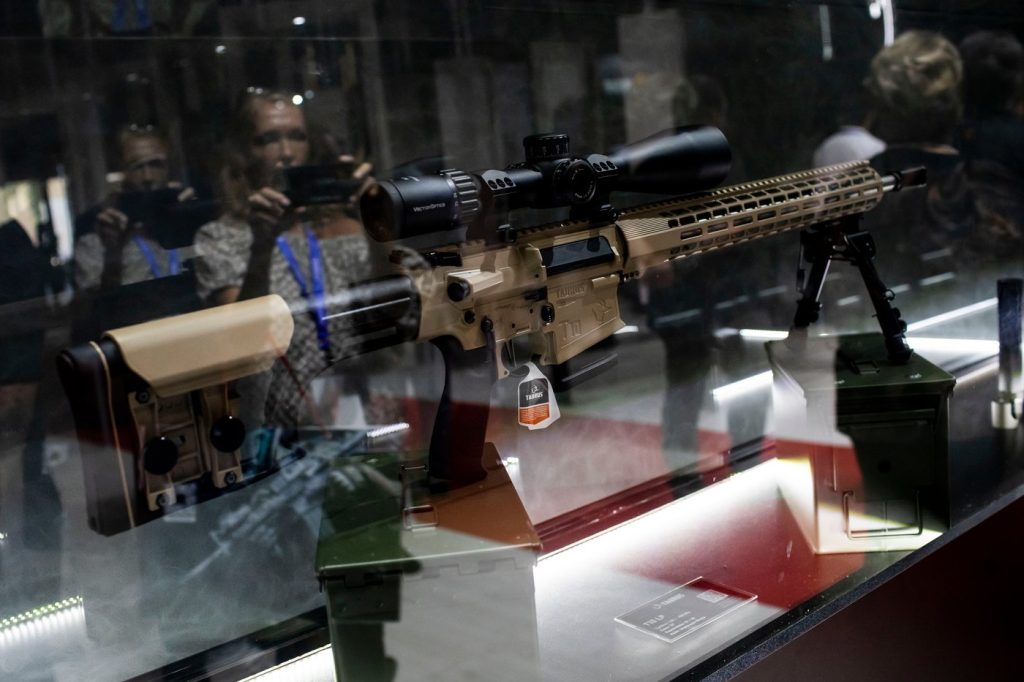In November 2023, a shocking crime unfolded at São Paulo's airport when gunmen in a car opened fire, resulting in the death of cryptocurrency entrepreneur Antônio Vinícius Lopes Gritzbach. This incident brought substantial attention to the prevalence of military-style firearms among Brazilian criminal organizations, as highlighted by a recent study from the Sou da Paz Institute, a nonprofit dedicated to tracking gun violence in Brazil.
Police recovered three semiautomatic rifles at the crime scene, which are classified as restricted for civilian use. Notably, one of the weapons was a Smith & Wesson rifle, purchased 15 years earlier by a U.S. citizen from a gun shop in Winchester, Virginia, and subsequently abandoned in a backpack near the airport. The other two rifles were Romanian-made and also sourced from the United States, although authorities have yet to uncover how these firearms were smuggled into Brazil.
The study by the Sou da Paz Institute examined nearly 7,000 seized firearms between 2019 and 2023 in Brazil’s Southeast region, home to notorious criminal groups like the First Command of the Capital (PCC) in São Paulo and Red Command in Rio de Janeiro. The analysis revealed an 11.4% increase in the seizure of restricted military-style weapons during this period.
A significant factor contributing to the proliferation of these firearms among criminal actors is traced back to looser gun regulations imposed during former President Jair Bolsonaro's administration. Bolsonaro authorized the civilian ownership of many weapons that were previously restricted to military and law enforcement use, including 9 mm pistols and various semiautomatic rifles. Consequently, the number of privately owned firearms surged from 1.3 million at the end of 2018 to 2.9 million in 2022, with many of these firearms finding their way into the illegal market through thefts from collectors and sports shooters.
Carolina Ricardo, the executive director of Sou da Paz, stated that the weakened gun controls under Bolsonaro facilitated organized crime's access to firearms in a manner that appeared legal. In July 2023, President Luiz Inácio Lula da Silva responded to the escalating violence by signing a decree that reinstated stricter gun control measures, reversing his predecessor's pro-firearms policies. The new regulations restored restrictions on semiautomatic weapons, limited the number of firearms civilians could own for personal safety from four to two, and mandated stringent documentation to justify the need for gun ownership.
The Sou da Paz study also highlighted the significant role of U.S. firearms in Brazil’s illegal market. While Brazilian-made guns comprised the majority of seized weapons, those from the United States ranked second. Research indicated that the U.S. is a crucial supplier of both complete firearms and unmarked components that contribute to Brazil's illicit market. There is a well-documented smuggling route from the U.S. to Brazil, often passing through Paraguay, Peru, and Bolivia.
Natalia Pollachi, one of the study's authors, noted that the U.S. has far less regulation on parts and components, enabling them to be smuggled into Brazil, where they are subsequently assembled locally into illegal firearms. Ricardo emphasized that if the U.S. government considers organized crime in Brazil a potential threat, similar to concerns regarding crime in Mexico and Canada, it must acknowledge that lax gun controls in the U.S. contribute to the problem in Brazil.
In conclusion, the intertwined issues of gun regulation in the U.S. and Brazil significantly impact the dynamics of organized crime in Brazil, demanding a collaborative approach to address these challenges effectively.











